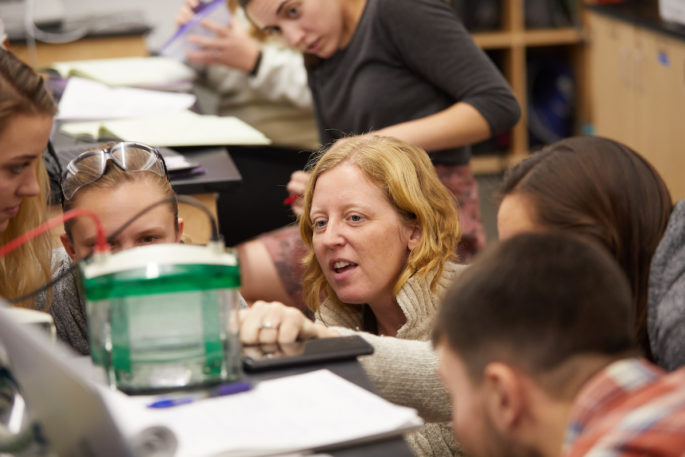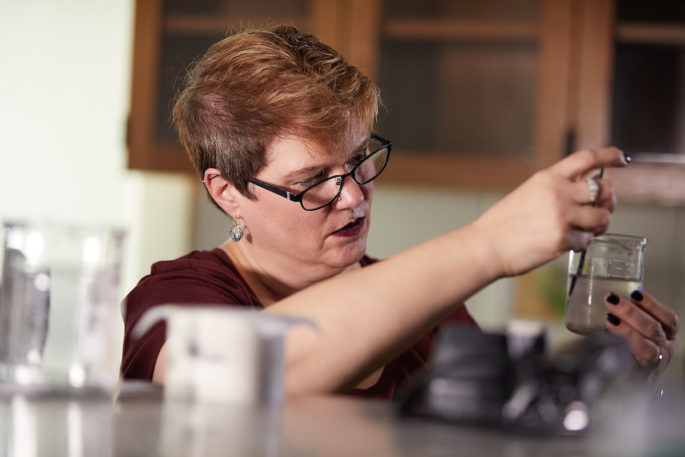Posted 9:56 a.m. Thursday, Jan. 31, 2019

Students’ protein research provides knowledge to make new medical discoveries.
Students’ protein research provides knowledge to make new medical discoveries
Assistant Professor Kelly Gorres’ students are learning about the importance of basic research in the discovery of new medicine.
How? By contributing to the body of scientific research that will lead to those medical breakthroughs.
During fall semester, her biochemistry class was split up into groups — each small pod of students purified different proteins related to cancer.
This process of purifying — isolating proteins — helps researchers figure out how they work. Since proteins are an important category of molecules inside cells of the body, determining how they function helps explain a bigger picture of how cells are working — or not. Problem areas can then be targeted with drugs to treat disease.
Gorres received a course-embedded research grant through UWL’s Center for Advancing Teaching and Learning to create the research project for her Chemistry 325: Fundamental Biochemistry class during the 2017-18 school year.
These grants allow instructors to redesign a course to include a research project. The origin of the research project can vary. In some cases, the students contribute to their instructor’s research project, while in others they conduct research for another UWL instructor or off-campus partner, explains Scott Cooper, UWL director of Undergraduate Research and Creativity.

Gorres says the 2017-18 course-embedded research project was so successful, she continued the project in fall 2018.
“The students really like doing something meaningful, something real,” she says. “It is more interesting and a little more challenging, but I think they like that.”
Senior and Chemistry Major Leslie Scheurer says the project is different from a typical class lab experiment where students can pretty easily move through a list of instructions. In Gorres class, they needed to be adaptable, problem solvers as things don’t go as planned.
“You have to adjust to the specific conditions of your research and be flexible and OK with any result,” says Scheurer.
Scheurer says this is the kind of preparation she needs as she embarks on graduate school after graduation. “I love research, so the more experiences like this I can get, the better,” she says.
Seniors Owen McCann and Tia Demers say one of the most important skills they’ve learned is how to analyze data related to their proteins. “It is giving me more experience for the workforce,” says McCann.
Demers, who aims to become a physical therapist, is gaining a deeper understanding the human body by understanding how proteins work and affect cell function. “That will be greatest application for me,” she says. “It is important to know the basics.”

Learn more about course-embedded research grants-
